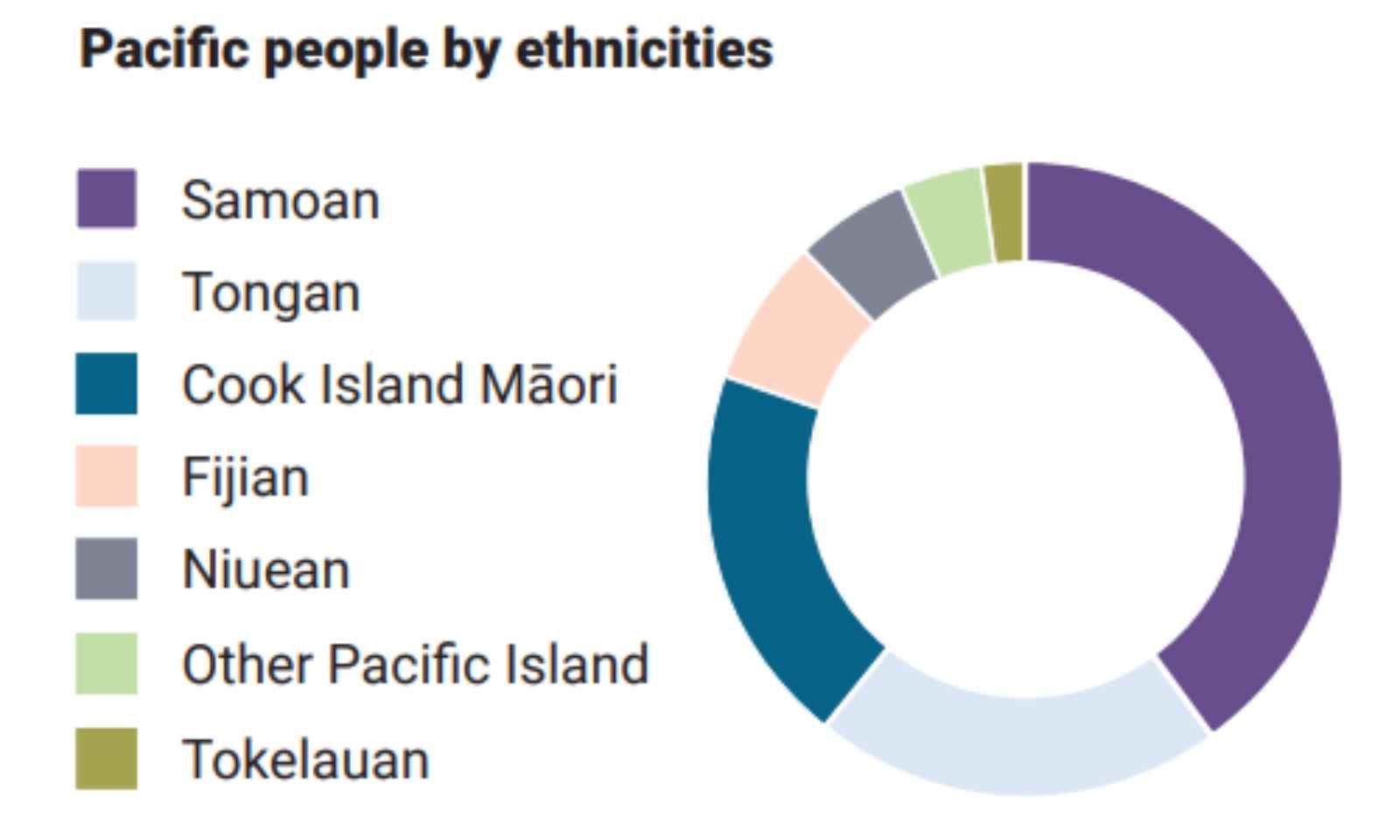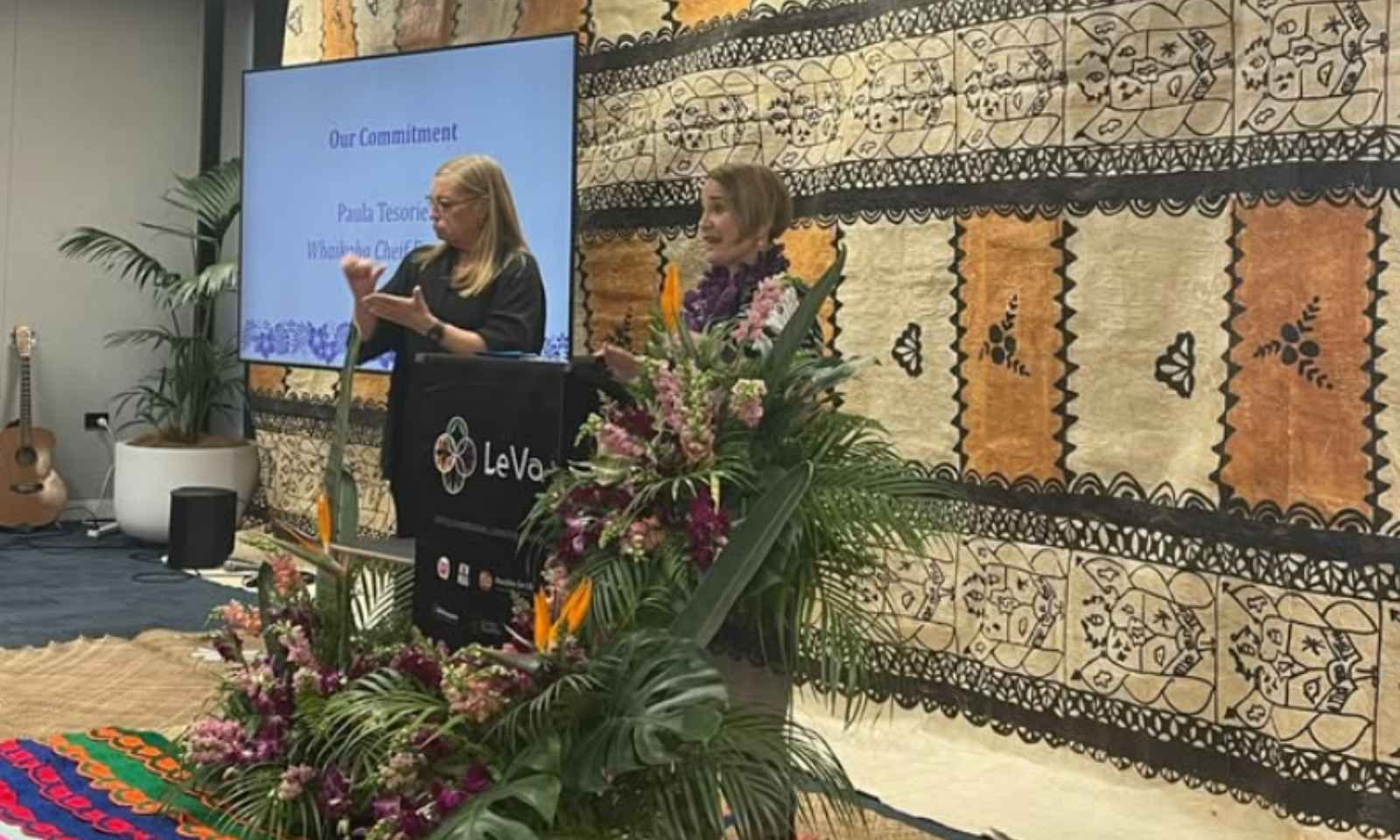

Atoatoali’o – the National Pacific Disability approach is built on the voices and feedback from Pacific disabled people and their Aiga.
Photo/Whaikaha Ministry of Disabled People
Empowering Pacific voices: Atoatoali’o shapes NZ’s future in disability support
Through extensive community engagement, the initiative seeks to develop culturally relevant solutions that reflect the needs of Pasifika.




Pacific pride on the big stage: ‘Chief of War’ wins Best Ensemble at the Spirit Awards



Māngere-Ōtāhuhu's future leadership revealed for 2027


Pacific pride on the big stage: ‘Chief of War’ wins Best Ensemble at the Spirit Awards

Pacific people in Aotearoa are expressing their concerns through this approach as the country prepares to refresh the strategy.
"Atoatoali’o," a Sāmoan term, symbolises a setting where everyone fits together harmoniously (atoatoa) in a circle (li’o)
The initiative has been developed through extensive talanoa (dialogue) sessions with over 1000 Pacific disabled individuals, their families, caregivers, and community leaders across New Zealand.
The goal is to establish a clear vision for disability support, allowing Pacific communities to identify their needs and collaboratively design solutions.
While Pacific people make up nine per cent of New Zealand’s population, their reported disability rate stands at 16 per cent. But when adjusted for their younger demographic, this rate increases to 21 per cent.
The report emphasises several critical areas for action, including culturally tailored leadership programmes, increased training in cultural competency for the workforce, and greater support for family-based caregiving models.
Members of the Wairarapa community emphasised the need for "fairer funding for services more suitable for Pacific peoples”. .
In a statement, they pointed out the importance of better funding for family-based support options, as many Pacific communities prefer family members to take on caregiving responsibilities for their loved ones.

A pie graph titled “Pacific people by ethnicities”, illustrating the 3 leading ethnicities receiving Disability support services being Samoan, Tongan and Cook Island. Photo/Whaikaha Ministry of Disabled People
They also noted that residential care services should receive adequate funding to ensure a consistent quality of care.
The Pacific disabled community accounts for eight per cent of those receiving disability support services, with intellectual disabilities and autism representing significant portions of disabilities within Pacific communities.

Whaikaha Chief Executive Paula Tesoriero (right) at the launch of Atoatoali'o. Photo/Whaikaha Facebook
A participant shared, "As a grandfather who cares for my two autistic grandchildren, I have relied on traditional concepts of caring by always acknowledging and encouraging the role of my family, extended family, church, and my community to support us”.
As New Zealand prepares to refresh its National Disability Strategy in 2025, Whaikaha - The Ministry for Disabled People - acknowledges the Pacific community for its valuable insights.
Watch the launch of Atoatoali'o — the National Pacific Disability Approach
The ministry says in a statement, “Now we need to ensure the New Zealand Disability Strategy reflects the thoughts of our Pacific disability community.”
A draft of the refreshed strategy will be presented to Minister Louise Upston and the Ministerial Disability Leadership Group in July for approval. It will likely be made public in August and September.